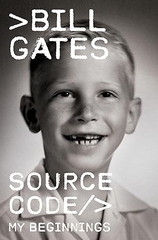-
-
-
Tổng tiền thanh toán:
-
-
Thông tin
-
Tìm sách theo yêu cầu
What makes an effective executive?
The measure of the executive, Peter F. Drucker reminds us, is the ability to "get the right things done." This usually involves doing what other people have overlooked as well as avoiding what is unproductive. Intelligence, imagination, and knowledge may all be wasted in an executive job without the acquired habits of mind that mold them into results.
Drucker identifies five practices essential to business effectiveness that can, and must, be learned:- Managing time
- Choosing what to contribute to the organization
- Knowing where and how to mobilize strength for best effect
- Setting the right priorities
- Knitting all of them together with effective decision-making
Ranging widely through the annals of business and government, Peter F. Drucker demonstrates the distinctive skill of the executive and offers fresh insights into old and seemingly obvious business situations.
Product Details
Series: Harperbusiness Essentials
- Paperback: 208 pages
- Publisher: HarperBusiness; Revised edition (January 3, 2006)
- Language: English
- ISBN-10: 0060833459
- ISBN-13: 978-0060833459
- Product Dimensions: 7.9 x 5.9 x 0.5 inches
- Shipping Weight: 5.6 ounces (View shipping rates and policies)
- Average Customer Review: 4.7 out of 5 stars See all reviews (158 customer reviews)
- Amazon Best Sellers Rank: #5,023 in Books (See Top 100 in Books)
- #73 in Books > Business & Money > Management & Leadership > Management
Editorial Reviews
Review
'Long recognised in business circles as a voice to listen to'
Harvard Business Review
'...it would be difficult to overestimate his contribution to management thinking'
Financial Times --This text refers to an out of print or unavailable edition of this title.
Harvard Business Review
'...it would be difficult to overestimate his contribution to management thinking'
Financial Times --This text refers to an out of print or unavailable edition of this title.
About the Author
Peter F. Drucker is considered the most influential management thinker ever. The author of more than twenty-five books, his ideas have had an enormous impact on shaping the modern corporation. Drucker passed away in 2005.
Most Helpful Customer Reviews
264 of 270 people found the following review helpfulBy Donald Mitchell HALL OF FAMETOP 500 REVIEWERVINE VOICE on May 15, 2000
Format: Paperback
Comment Was this review helpful to you? YesNoPeter Drucker begins this book by pointing out that there is no science of how to improve executive effectiveness, nor any naturally-occurring effective executives. The redeeming point of this problem is that he argues that executive effectiveness can be learned.
The principles begin with a focus on time management. We can get greater quantities of every other resource we need, except time. Drucker reports that executives spend their time much differently than they think they do and much differently than they would like to. His solution is to begin by measuring how you spend your time, and compare it with an ideal allocation. Than begin to systematically get rid of the unimportant in favor of the important. His suggestions include stopping some things, delegation, creating policy decisions to replace ad hoc decisions, staying out of things that others should do, and so forth. Any student of time management will recognize the list he suggests. One of the best points is to give yourself large blocks of uninterrupted time to do more significant tasks. He also cautions us not to cut down on time spent with other people. If an hour is required, don't try to do it in 15 minutes.
Next, Drucker argues that we should focus on what will make a difference rather than unimportant questions. Otherwise, we will fill our time with motion rather than proceeding towards results.
Beyond that, he points out that we have to build on our own strengths and those of the people in our organization. That is how we can outperform the competition and accomplish much more.
We also need to be systems thinkers, getting to the core of the issue first. If we are weak on new products, we need to work on the new product development process before fine-tuning our marketing. If we reverse the order of these activities, our results will be far less.
Perhaps the best section in the book has to do with executive decision-making, when to make a decision, about what, and what principles to apply. If you only read this section, you would be well rewarded for studying this fine book.
I especially liked the familiar Drucker use of important historical examples to make his points. You'll remember the principles better because the examples are so vivid.
Although this book was written some time ago, it retains the strength of its insight today. Truly , this is a timeless way to achieve greater effectiveness.
You may be concerned about how you are going to learn to apply these concepts. That is actually quite easy. Drucker provides questions in each section that will guide you, step-by-step, to focus your attention on the most promising areas.
If you only read one book about how to improve your personal effectiveness as an executive, you will find this to be a rewarding choice.
The principles begin with a focus on time management. We can get greater quantities of every other resource we need, except time. Drucker reports that executives spend their time much differently than they think they do and much differently than they would like to. His solution is to begin by measuring how you spend your time, and compare it with an ideal allocation. Than begin to systematically get rid of the unimportant in favor of the important. His suggestions include stopping some things, delegation, creating policy decisions to replace ad hoc decisions, staying out of things that others should do, and so forth. Any student of time management will recognize the list he suggests. One of the best points is to give yourself large blocks of uninterrupted time to do more significant tasks. He also cautions us not to cut down on time spent with other people. If an hour is required, don't try to do it in 15 minutes.
Next, Drucker argues that we should focus on what will make a difference rather than unimportant questions. Otherwise, we will fill our time with motion rather than proceeding towards results.
Beyond that, he points out that we have to build on our own strengths and those of the people in our organization. That is how we can outperform the competition and accomplish much more.
We also need to be systems thinkers, getting to the core of the issue first. If we are weak on new products, we need to work on the new product development process before fine-tuning our marketing. If we reverse the order of these activities, our results will be far less.
Perhaps the best section in the book has to do with executive decision-making, when to make a decision, about what, and what principles to apply. If you only read this section, you would be well rewarded for studying this fine book.
I especially liked the familiar Drucker use of important historical examples to make his points. You'll remember the principles better because the examples are so vivid.
Although this book was written some time ago, it retains the strength of its insight today. Truly , this is a timeless way to achieve greater effectiveness.
You may be concerned about how you are going to learn to apply these concepts. That is actually quite easy. Drucker provides questions in each section that will guide you, step-by-step, to focus your attention on the most promising areas.
If you only read one book about how to improve your personal effectiveness as an executive, you will find this to be a rewarding choice.
148 of 152 people found the following review helpfulBy ConsultantsMind on July 20, 2002
Format: Paperback
Although Drucker wrote EFFECTIVE EXECUTIVE more than 30 years ago, the principles of decision making are still relevant today, if not more so. The effective executive. . .
1) Knows where their time goes. Time is the most valuable resource and is inelastic. It must be managed. What has priority? What is better left undone? What can be outsourced?
2) Focuses on results (not effort) by asking:
"What do I do that justifies my being on the payroll?" (pg 53).
3) Staff to people's strength (not the absence of weakness).
There is no such thing as a "good man". Good at what? Likewise, a person is hired to produce results, not to please a superior, or blend in.
4) Fills the job with the right person (not fits the job to the available person). Jobs in the organization are interdependent; if one changes, it will affect another. Also, "To tolerate diversity, relationships must be task-focused rather than personality focused." (pg 77)
5) Tries to be himself / herself (not someone else). (S)He looks for patterns in their performance, and focus on their strengths. "Feed the opportunities and starve the problems." (pg 98)
6) Concentrates on one effort at a time. (not multi-tasking)
It is hard enough to do one thing right.
7) Concentrates on important and strategic decisions (not a great number of small, reactionary decisions). Many problems were created in the past, and solving them only re-establishes the status quo. It is better to seek opportunities than just fix problems.
8) Makes decisions based on dissenting opinions (not pseudo facts and pre-judgements) Use other's opinions to form a case for each side.
9) Acts or does not act (no hedging or compromise)
- Link: http://www.amazon.com/Effective-Executive-Definitive-Harperbusiness-Essentials/dp/0060833459
1) Knows where their time goes. Time is the most valuable resource and is inelastic. It must be managed. What has priority? What is better left undone? What can be outsourced?
2) Focuses on results (not effort) by asking:
"What do I do that justifies my being on the payroll?" (pg 53).
3) Staff to people's strength (not the absence of weakness).
There is no such thing as a "good man". Good at what? Likewise, a person is hired to produce results, not to please a superior, or blend in.
4) Fills the job with the right person (not fits the job to the available person). Jobs in the organization are interdependent; if one changes, it will affect another. Also, "To tolerate diversity, relationships must be task-focused rather than personality focused." (pg 77)
5) Tries to be himself / herself (not someone else). (S)He looks for patterns in their performance, and focus on their strengths. "Feed the opportunities and starve the problems." (pg 98)
6) Concentrates on one effort at a time. (not multi-tasking)
It is hard enough to do one thing right.
7) Concentrates on important and strategic decisions (not a great number of small, reactionary decisions). Many problems were created in the past, and solving them only re-establishes the status quo. It is better to seek opportunities than just fix problems.
8) Makes decisions based on dissenting opinions (not pseudo facts and pre-judgements) Use other's opinions to form a case for each side.
9) Acts or does not act (no hedging or compromise)
XEM THÊM TẠI AMAZON.COM
- Thông tin chi tiết
- Mục lục
- Đọc thử
- Đọc thử
- Đánh giá & bình luận của người mua
- Những cuốn sách cùng chủ đề hoặc có liên quan
Tại web chỉ có một phần nhỏ các đầu sách đang có nên nếu cần tìm sách gì các bạn có thể liên hệ trực tiếp với Thư viện qua Mail, Zalo, Fanpage nhé
Đăng ký nhận tin qua email
Hãy đăng ký ngay hôm nay để nhận được những tin tức cập nhật mới nhất về sản phẩm và các chương trình giảm giá, khuyến mại của chúng tôi.












